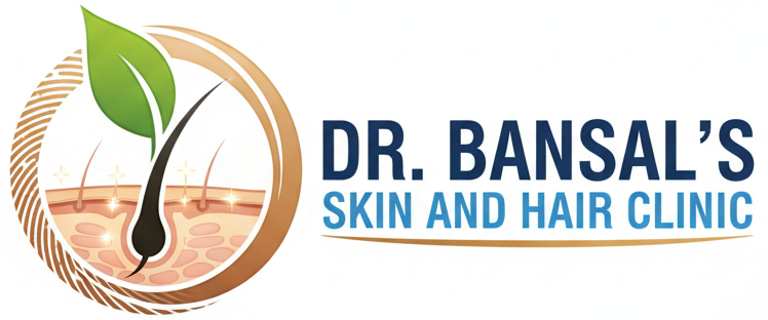Urticaria (hives) Treatment in Indore
Dr. Bansal's Skin Clinic, Indore
Urticaria, or as it is also known, Hives, is a skin reaction causing red, itchy, raised bumps on the skin.
It occurs when the body releases histamine and other chemicals in response to an allergic reaction, an infection, or any unknown trigger.
Urticaria can be:
Acute - lasts less than 6 weeks
Chronic – lasts longer than 6 weeks and may come and go
It is not contagious.
Symptoms
Hives: raised, red or skin-colored welts on the skin
Itching or burning sensation
Swelling around the eyes, lips, or throat in some cases (angioedema)
Lesions may appear suddenly and disappear in hours, but new ones may form
It can appear anywhere on the body
Treatment of Urticaria
Treatment aims at relieving itching, reducing swelling, and preventing its recurrence.
1. Identify and Avoid Triggers
Common triggers include foods (nuts, seafood, eggs), medications (aspirin, antibiotics), insect bites, heat, stress, or infection.
Keep a symptom diary to identify possible triggers.
Avoid known allergens and irritating substances.
2. Antihistamines (Symptomatic Treatment)
Non-sedating antihistamines (preferred for daily use):
Cetirizine, Loratadine, Fexofenadine, Desloratadine
Sedating antihistamines (for night-time itching):
Diphenhydramine, Hydroxyzine, Chlorpheniramine
These medications block histamine and reduce itching and swelling.
The dose may be increased under a doctor's supervision in chronic cases.
3. Corticosteroids (Short-Term Use)
Severe flare-ups not responsive to antihistamines can be treated with oral steroids, such as Prednisolone.
Used only in the short term because of side effects
4. Other Medications (for Chronic or Severe Cases)
Leukotriene receptor antagonists, such as Montelukast, assist when antihistamines alone are ineffective.
Immunosuppressants, for instance, Cyclosporine in resistant chronic urticaria.
Biologic therapy (Omalizumab) - injection for chronic spontaneous urticaria that is resistant to usual treatment.
5. Home Care and Self-Help
Apply cool compresses to reduce itching and swelling.
Wear loose, light clothes to avoid skin irritation.
Avoid hot showers; instead, use lukewarm water.
Stay cool and relaxed; tension will make the hives worse.
Use gentle, fragrance-free skin products.
⚠️ When to Seek Medical Attention
Swelling of the face, lips, tongue, or throat that could indicate angioedema or anaphylaxis
Difficulty breathing or swallowing
Hives that continue beyond 6 weeks (chronic urticaria). These symptoms require immediate medical attention.
Care
Dr. Shreyas Bansal has over 46 years of experience in promoting hair health and wellness. At Dr. Bansal’s Homeopathy Clinic, located at 2 Manish Bagh, Sapna Sangeeta Road, Indore, we provide personalised care to strengthen your hair, improve scalp health, and restore confidence naturally.
Health Hairs AT
Beauty
+91 9926120111
© 2025. All rights reserved.
